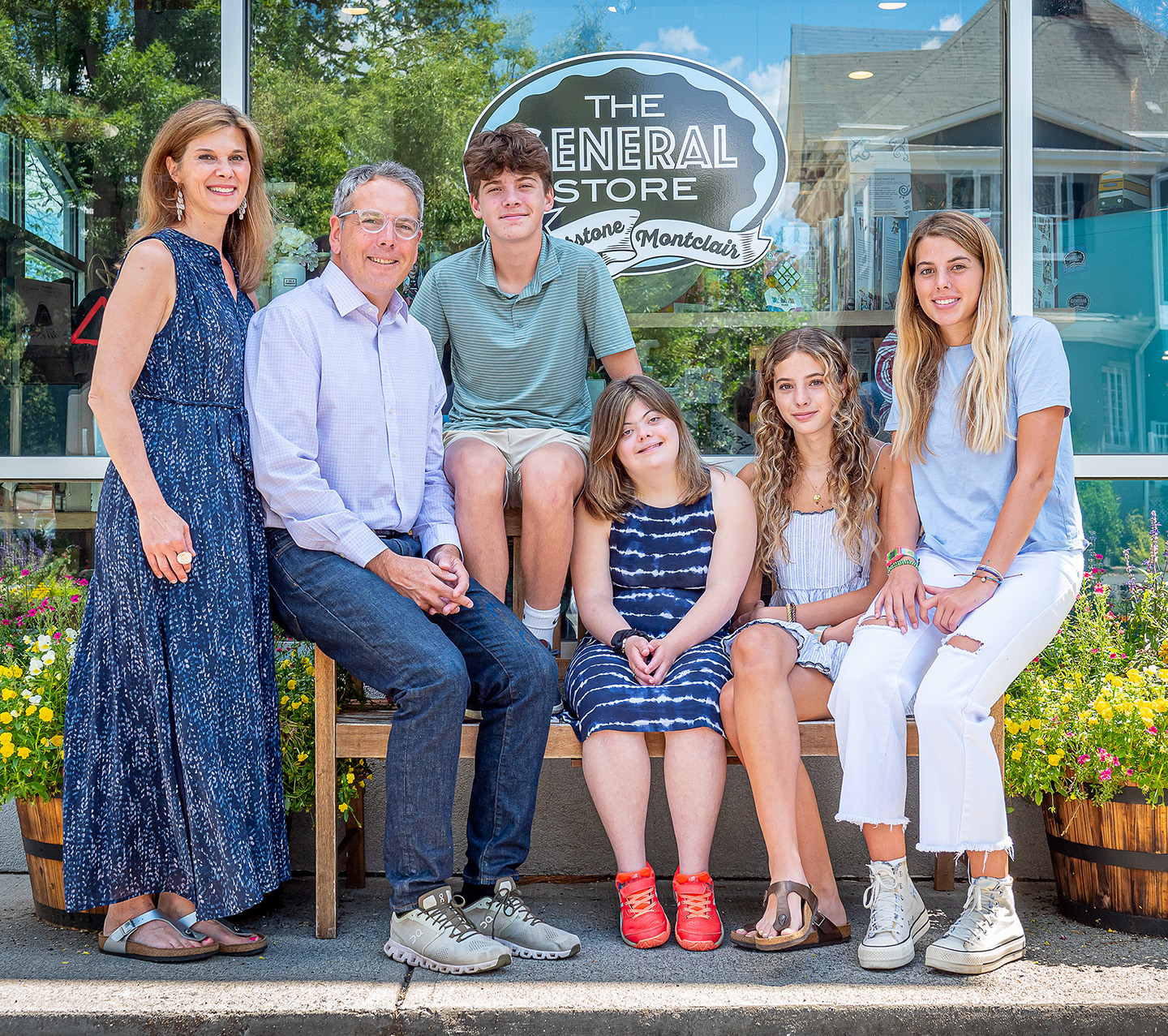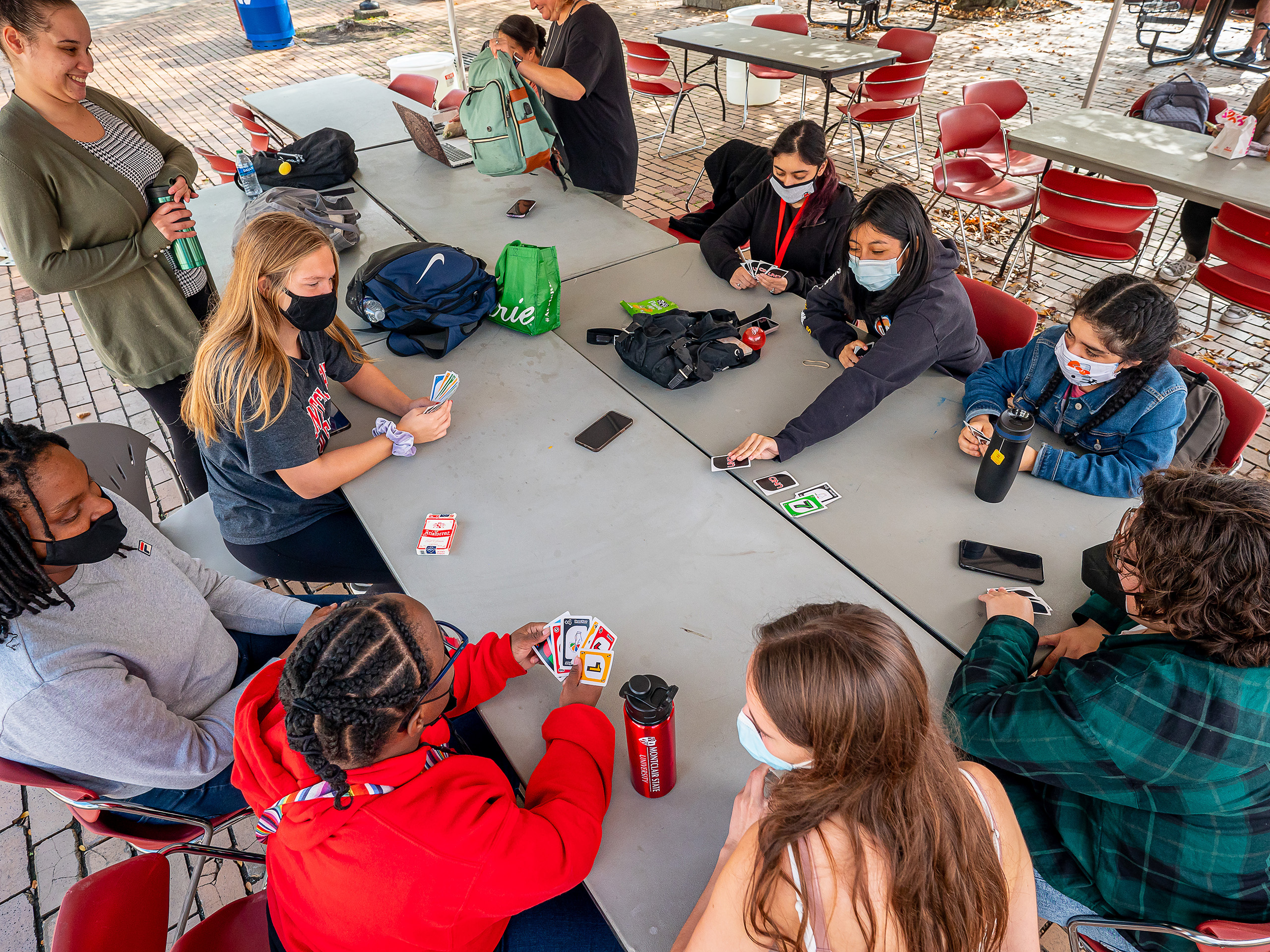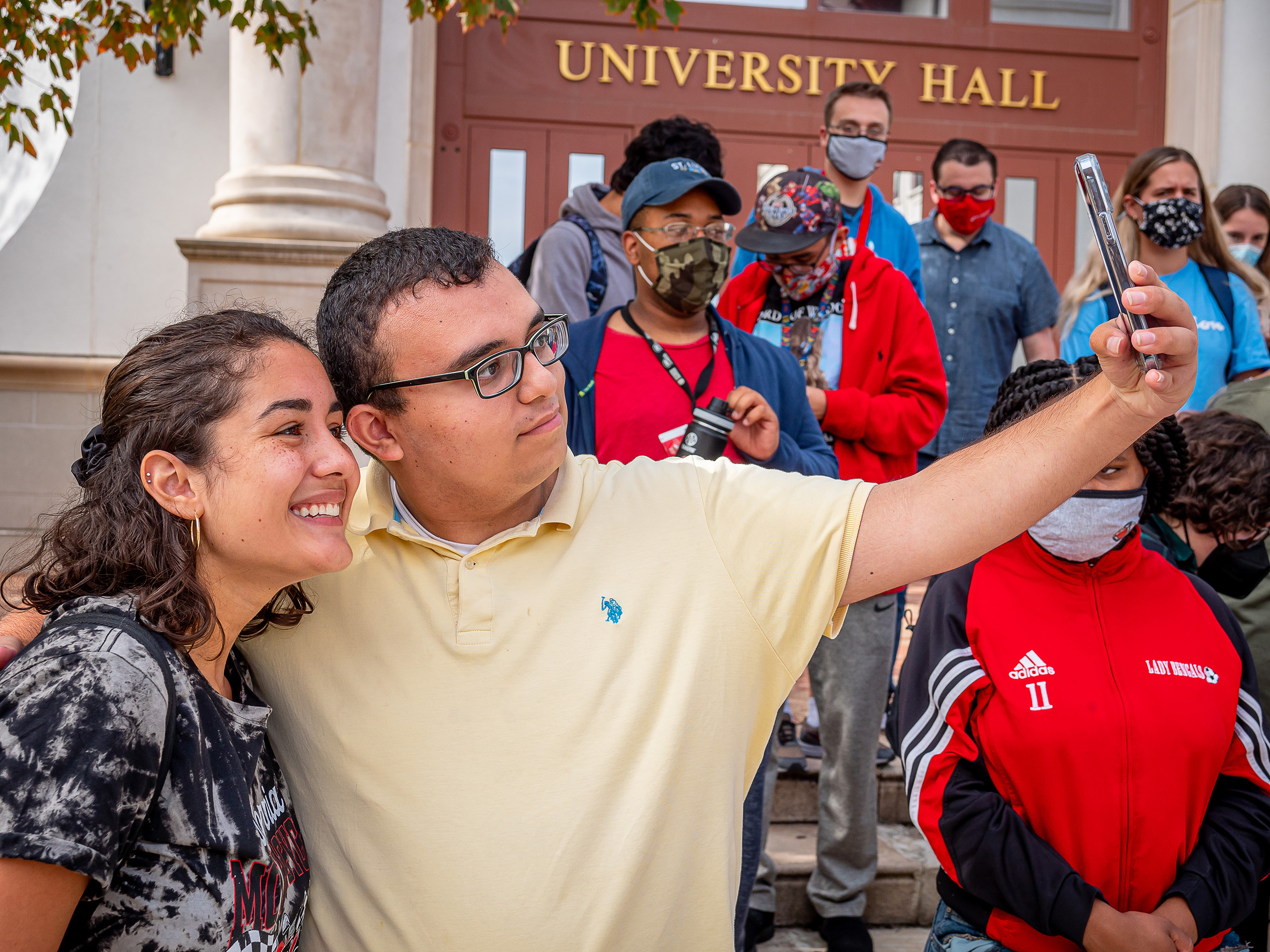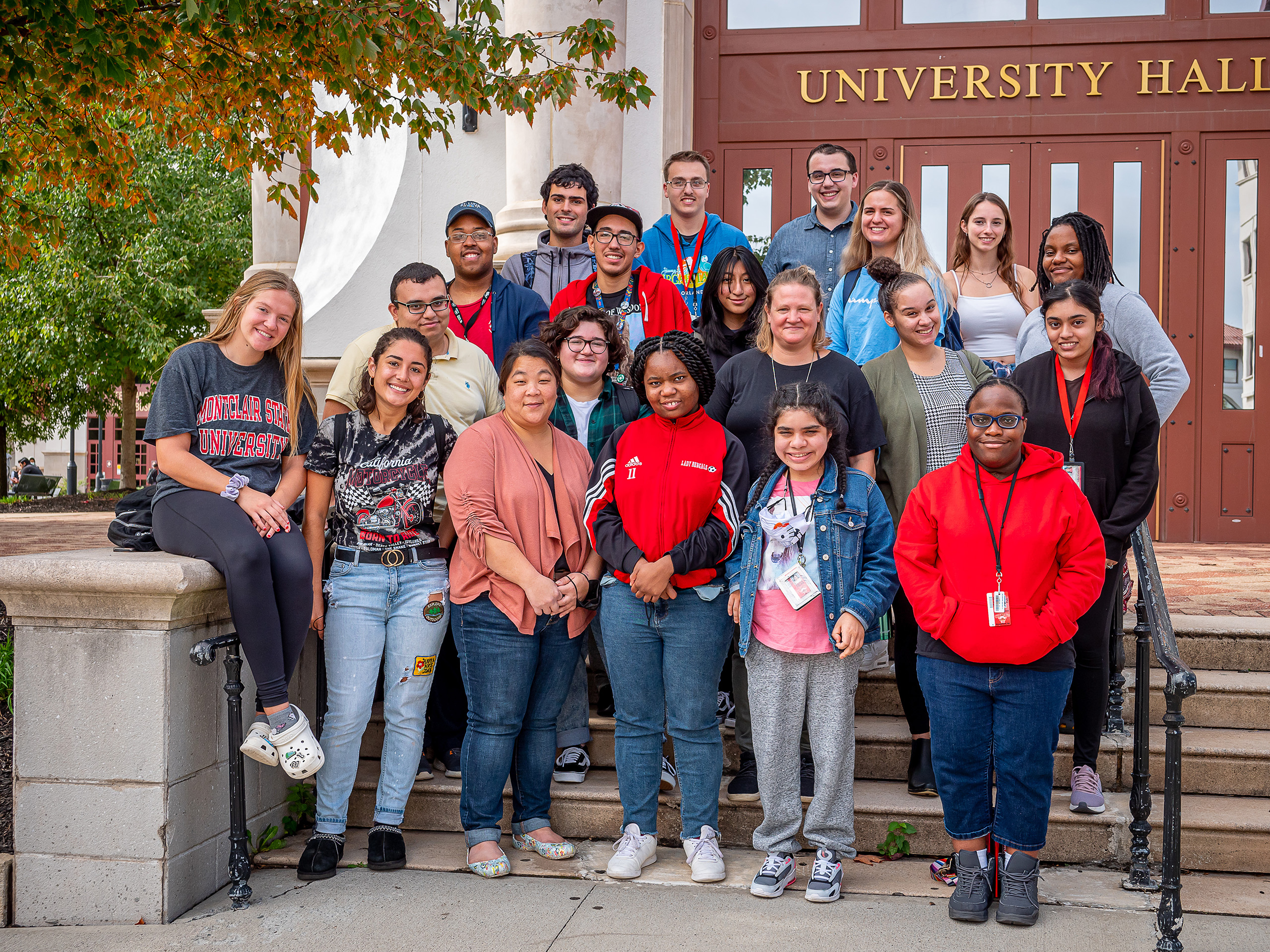
Inclusion for All
University’s partnership with Montclair family leads to expansion of inclusive educational opportunities for students with disabilities on campus
Wendy and Andrew Lacey with their children, from left, Derek, Evelyn, Abigail and Paige, share a commitment to strengthen inclusion in the community.
When Wendy Lacey opened Cornerstone Montclair in 2017 to provide opportunities for people with disabilities to be active in their community alongside their peers, its location across from the Buzz Aldrin Middle School was by design. On Friday afternoons, “500 students would stream out and many would come buy penny candy at The General Store,” she says.
It’s not that those pennies added up to profits. It was all about changing perceptions, Wendy Lacey says. “Those middle schoolers come in and see people of all different abilities working here.”
That message, strengthening the idea of opportunity and inclusion in the community, is at the heart of Cornerstone, and now, thanks to a generous grant from the Lacey Family Inclusive Education Fund, has led to a partnership with Montclair State University to expand the educational opportunities for students with disabilities on the Montclair State campus.
The family donated $250,000 to the University’s Increasing Access to College (IAC) project to establish the University’s first comprehensive transition program and college certificate for adults with intellectual or developmental disabilities.
The project was started six years ago by professors Jessica Bacon and Susan Baglieri, project coordinators and faculty members in the Department of Teaching and Learning. The idea was to promote the inclusion of people with disabilities in all aspects of college life, partnering them with students studying for their teaching certification and those performing services through the Center for Community Engagement.
“What sets our work apart from other universities is the level and focus on inclusivity and inclusion,” Bacon says. While other postsecondary programs for students with intellectual disabilities provide peer support models, they’re not all fully integrated into the systems of campus. “We’ve worked hard to have that kind of vision of inclusion be our core value and our core focus.”

Lacey Family Inclusive Education Fund
As strong advocates for inclusive education for children with special needs, Wendy and Andrew Lacey and their four children – Paige, Evelyn, Abigail and Derek – are active in the Montclair community.
Their family business, Cornerstone Montclair, is both a philosophy and a physical space. At its core the mission of Cornerstone Montclair is about people of all abilities contributing to and feeling welcome in their community. It’s a multipurpose building that has a lot of activities for everyone, but goes out of its way to make sure everyone includes people with disabilities.
“It does not surprise me that the Lacey family has committed to a transformational gift that will impact the future of inclusive education at Montclair State. To the inclusive community, they are an inspiration,” says Yanira Amadeo, director of Development for the College of Education and Human Services.
“We have put time and effort and work into thinking about inclusion outside of the school system and the challenges of transitioning into local communities,” says Wendy Lacey, who is also a member of the advisory board to the College of Education and Human Services. “It has a lot to do with Evelyn [a high school junior with Down syndrome] and what we hope happens in her life. Our eyes have been opened to the value that people with disabilities add to their community and to what’s important in helping them to have a fulfilling life.”
Evelyn Lacey has benefitted by learning with her peer group in the public school where her siblings attend. As a preschooler, she attended the Ben Samuels Children’s Center at Montclair State, which provides inclusive early childhood education.
“As she has grown into a lovely young woman, we have become more involved in disability rights and the disability awareness community,” Wendy Lacey says. “It becomes painfully clear that even if you have great success in an inclusive education setting, once you hit the age of 21 and you age out of that structured environment, for many people, it’s like falling off a cliff. It’s very difficult to find your way in life without the same kind of support you got when you were in school.”
Increasing Access to College Project
“The project is consistent with Montclair State’s commitment to equity, social justice and inclusion,” says Tamara Lucas, former dean of the College of Education and Human Services who supported the program from its inception.

“We are interested in opening up all the resources the campus has to offer to as many people in the community as possible,” Baglieri says. “For us, we see it very much as broadening how our campus is engaged with our whole community. We believe our students benefit from having increased disability diversity on campus.”
That’s been the experience of Allyn Lilien ’21, a future teacher on the five-year track to earn her bachelor’s degree and Master of Arts in Teaching with teacher certifications in Math and Teacher of Students with Disabilities.
As a peer volunteer, Lilien has helped students with disabilities navigate the academic and social aspects of campus life. “One of the biggest aspects of the IAC is to create an environment where people with and without disabilities are meeting each other and learning about each other,” she says.
“We have a lot of confidence,” adds Wendy Lacey, “that this gift is going to help take IAC to the next level.”
